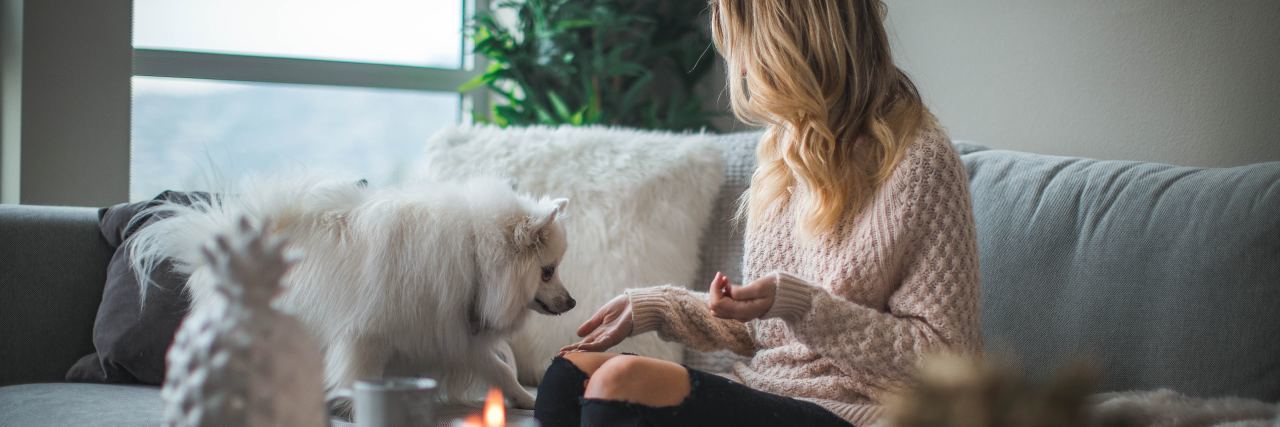As a pediatric occupational therapist, I absolutely love dedicating my time and energy to my patients. Each day is filled with personal interaction with children, their parents, families, doctors and teachers, just to name a few. My patients need and deserve my full attention as we move through intentionally planned activities that are both fun and therapeutic. A side effect of this dedication, however, is a level of stress and anxiety. Am I planning the right activity? Will my patient reach his goal? Will my therapy help him in daily life? Am I doing enough?!
Sometimes, it’s hard to leave this stress and anxiety at work. In my sessions, I display high energy and employ a plethora of patience; however, my tank is pretty depleted at the end of the day. I drive home with the radio off and try to prepare for a non-therapist life with other roles and relationships. Often the recharge period is quick, but other times more intentional methods of decompression are necessary. I’ve realized I need better self-care strategies in my toolbox to help me remain my best self after a full day of work, so I’ve been concentrating on this for the past few weeks. This occupational therapist made self-care the priority, and this is what I’ve learned so far.
1. Bubble baths are too much after 15 minutes.
I’ve never been one for baths in adulthood, but recently I’ve given them another try. I’ve realized the first five to 10 minutes are glorious: I read, listen to calming music and inhale my newly purchased stress relief bubble bath. After that, though, remaining in the bath makes me feel too low, calming my body to the point of I-need-to-go-to-sleep-right-now. I have found through trial and error that 15 minutes is just right to help me relax and recharge, but still be a functioning person when I get out.
2. A written out to-do list is underrated.
There is something about the act of physically writing down, then physically crossing off items on a to-do list. I’ve started writing down both personal goals and work goals for each week in a planner, and I have realized I am more successful in meeting these goals than when I was just putting notes in my phone. Being productive lessens my feelings of being overwhelmed, so a physical to-do list is a win-win in the stress relief department.
3. Sometimes, I have to say no.
As an extrovert, I often get energized by social interaction with others. What I’ve noticed, however, is that after a long day of work, what has energized me in the past can actually have the opposite effect. Despite my natural inclination to be social, sometimes I have to put away the fear of missing out and say no to an after-work event in order to not completely deplete my energy reserve.
4. Cooking can help you feel accomplished.
After a long day, oftentimes the last thing I feel like doing is spending the time cooking a meal. I’ve found shorter, simpler meals that do not take too much time or brain power is best. For example, a cup of soup and a grilled sandwich, or stir fry with steamed vegetables — 30-minute meals that help me feel accomplished and healthy without involving lengthy recipes and a large time commitment.
5. Book clubs are way more fun than reading alone.
My clinic recently started a book club where we read books both related and unrelated to our field. Having friends reading the same book at the same time as you definitely adds to the fun. Now, at work, we have something extra to talk about that has nothing to do with therapy or our patients. Reading has always been a relaxing and enjoyable pastime for me, but the added deadline and social interaction help make me prioritize a relaxing night in with a book.
6. Emotional TV is cathartic.
I am often met with confusion when I tell others I seek out highly emotional television shows in order to decompress from an emotional day. Doesn’t seem to make sense, right? Wrong! Crying is cathartic. Entering into a world of a fictional family and crying along with their highly dramatic yet realistic life is the best medicine for a stressful day. Instead of ignoring the emotional state I’m in after work, I’ve realized that meeting it head-on through an outlet such as TV can be helpful in feeling recharged.
7. Thank people like Marie Kondo would.
After watching some of Marie Kondo’s “Tidying Up” show, I was drawn to her practice of thanking the clothes you no longer need to keep and realized that this practice can definitely apply to all things. For example, rather than being frustrated after a difficult treatment session, I have found it helpful to internally thank that session for teaching me patience, before I metaphorically give that frustration away. It’s all about perspective, and I’ve learned I can be in control of what I allow to stress me out. (Thanks, Marie.)
Ultimately, during this experience, I’ve learned that self-care is a state of mind and a way of thinking. What relaxes me one day may not feel right the next, so I’m constantly trying to be mindful of what I need at that moment, adding strategies I’ve found to be successful along the way. My routine is far from perfect, but it is helping me toward my goal of being the best Me all day, every day.
Photo by Roberto Nickson on Unsplash

